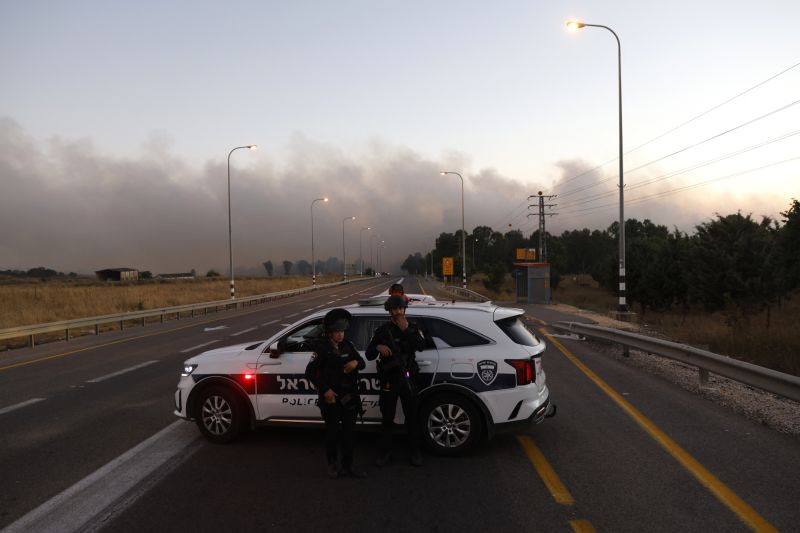In a significant escalation of tensions on the Israeli-Lebanon border, Israeli authorities claimed that two people were killed as dozens of projectiles were fired on the Golan Heights from Lebanon. The incident marks a serious intensification of hostilities in a region already marred by inter-state conflict and domestic instability.
According to Israeli military officials, an estimated dozens of projectiles, in the form of rockets and mortars, were launched from Lebanon towards northern Israel. The Israeli Defense Forces (IDF) promptly issued alerts to residents in the Golan Heights, instructing them to stay in their homes and shelters.
The two victims, who have not been officially identified, were reportedly killed when one of the projectiles hit a residential area. Images and videos circulated on social media showed buildings and vehicles severely damaged, and many people reported being shaken by the force of the explosions.
Meanwhile, the IDF announced that their Iron Dome aerial defense system had intercepted several projectiles, but that some had managed to penetrate the system. Israeli forces retaliated swiftly, launching artillery and air strikes on suspected launch sites in southern Lebanon. The IDF’s rapid response underscores the volatile nature of the Israeli-Lebanese border, a region with a long history of violent encounters.
Israeli Prime Minister Naftali Bennett convened an emergency meeting with security officials to discuss the situation. The attack and its significant toll have provoked widespread condemnation in Israel and increased criticism of Hezbollah, the Lebanese militant group often implicated in attacks against Israel.
In Lebanon, the situation is equally grim. A crisis-stricken nation, Lebanon is grappling with a myriad of domestic issues, including a severe economic crisis and political instability. The current situation exacerbates the already complex and tense landscape. It is worth noting that Lebanon’s government has repeatedly denied any association with the attacks, placing blame instead on independent Palestinian factions operating within their borders.
This violent spate on the Israeli-Lebanon border marks a perilous escalation in a region already on edge. Disentangling the causes and consequences of such violent exchanges can be a challenging endeavor considering the region’s geopolitical complexity. However, it’s evident that these exchanges incite destruction and loss of life on both sides of the border, exacerbating regional instability.
The United Nations Interim Force in Lebanon (UNIFIL), tasked with maintaining peace along the Lebanese-Israeli border since 1978, has called for utmost restraint from all parties. International advocacy for peace and mediation mechanisms should be reinforced to prevent further escalation of violence that puts civilian lives at risk.
Ultimately, the implications of this incident go beyond the immediate casualties and destruction. It further underscores the volatility of the Israeli-Lebanese border, a historical hotspot of regional conflict. It also sets a disturbing precedence given the extensive reach of the projectiles and the intensity of the Israeli response. Hence, sustained diplomatic efforts are necessary to navigate the challenges and potential repercussions of this incident on regional peace and security.




